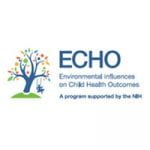Projects
Current Projects
Early Growth and Development Study (EGDS)
 The Early Growth & Development Study (EGDS) is a nationwide, prospective study of birth parents and adoptive families aimed at investigating how families can help their children develop to their fullest potential. Our study builds on emerging evidence about the relationship between heredity and the family environment—that is, nature and nurture—and how the two work together and separately in child development. This study is the first of its kind to examine such issues and general adoption issues such as openness. EGDS-School follows the original sample of children with a focus on school readiness and executive functioning (basic abilities such as memory and attention). EGDS-Phase 2 examines the influences of the prenatal environment, the family environment, and heredity on child development. EGDS-NIMH examines pathways to the development of early emerging emotional and behavioral symptoms and to later psychiatric symptoms in middle childhood. The fourth and most recent phase is EGDS-Health which focuses on the eating habits and behaviors of adoptive parents, their children, and of birth parents, examining family dietary habits, food preferences, physical activities, and child growth patterns from birth to middle childhood.
The Early Growth & Development Study (EGDS) is a nationwide, prospective study of birth parents and adoptive families aimed at investigating how families can help their children develop to their fullest potential. Our study builds on emerging evidence about the relationship between heredity and the family environment—that is, nature and nurture—and how the two work together and separately in child development. This study is the first of its kind to examine such issues and general adoption issues such as openness. EGDS-School follows the original sample of children with a focus on school readiness and executive functioning (basic abilities such as memory and attention). EGDS-Phase 2 examines the influences of the prenatal environment, the family environment, and heredity on child development. EGDS-NIMH examines pathways to the development of early emerging emotional and behavioral symptoms and to later psychiatric symptoms in middle childhood. The fourth and most recent phase is EGDS-Health which focuses on the eating habits and behaviors of adoptive parents, their children, and of birth parents, examining family dietary habits, food preferences, physical activities, and child growth patterns from birth to middle childhood.
Study Investigators:
Jenae Neiderhiser – Penn State University
Leslie Leve – University of Oregon
David Reiss – Yale University
Misaki Natsuaki – University of California, Riverside
Jody Ganiban – The George Washington University
Daniel Shaw – The University of Pittsburgh
Check us out on Facebook @EarlyGrowthandDevelopmentStudy and Twitter @egdstudy!
CHO (EGDS-Pediatric Cohort)

We have established a reliable research infrastructure, exceptional measurement of the early childhood family social environment, medical records data, DNA and salivary cortisol samples, high retention rates, and reliable and transparent data-sharing methods. We will use our well-established prospective adoption sample to (a) help clarify causal inferences about environmental influences on neurodevelopment and obesity, and (b) explore the unfolding interplay between inherited child characteristics and environmental influences from birth to adolescence.
In the first phase (UG3), we will (1) re-recruit families of 1,000 children from EGDS; (2) generate pilot scale coding of adult medical records, pilot our geocoding system, conduct preliminary analyses, and develop and test a brief measure of social environmental adversity; and (3) collaborate and plan with the ECHO Steering Committee. It is clear that both biological and environmental factors play a role in the unfolding of health disorders beginning very early in development, yet the specific mechanisms and processes that lead to healthy development versus illness are not well understood. When combined with other ECHO pediatric cohorts, the data generated and analyses conducted in the proposed study will lead to improved guidance for future prevention efforts aimed at offsetting inherited risks and maximizing inherited strengths to promote healthy development.
Environmental Influences on Child Health Outcomes (Echo) Program
Study Investigators:
Jenae Neiderhiser – Penn State University
Leslie Leve – University of Oregon
Jody Ganiban – The George Washington University
Pennsylvania Twins (PA Twins)

The Pennsylvania Twins (PA Twins) project is a longitudinal study of twins and their parents. The first aim of this project is to build a registry of twins born in the state of Pennsylvania, in an attempt to further encourage twin research. PA Twins, Adolescents focuses on the relationships between parents and their twins with the goal of understanding the genetic and environmental influence on family relationships, and child adjustment.
Study Investigators:
Jenae Neiderhiser – Penn State University
Pete Hatemi – Penn State University
Hobart Cleveland – Penn State University
Genetics and Human Agency
 Genetics and Human Agency is a funding initiative sponsored by the John Templeton Foundation and led by Eric Turkheimer of the Department of Psychology at the University of Virginia. This project is attempting to understand how can we promote the development and maintenance of highly complex behavior and virtuous character in the context of a realistic understanding of human behavioral genetics. We are particularly interested in philosophical, theoretical and empirical work involving the genetics of very complex human behavior and the interaction of genetics with human agency and self-improvement.
Genetics and Human Agency is a funding initiative sponsored by the John Templeton Foundation and led by Eric Turkheimer of the Department of Psychology at the University of Virginia. This project is attempting to understand how can we promote the development and maintenance of highly complex behavior and virtuous character in the context of a realistic understanding of human behavioral genetics. We are particularly interested in philosophical, theoretical and empirical work involving the genetics of very complex human behavior and the interaction of genetics with human agency and self-improvement.
http://www.geneticshumanagency.org
Study Investigators:
Jenae Neiderhiser – Penn State University
Amanda Ramos – Penn State University
Michael Burroughs – California State University, Bakersfield
Mathew Vess – Texas A & M
Rebecca Brooker – Texas A & M
Mathew Stitcher – Washington State University
Eric Turkheimer – University of Virginia
Gene-Environment Interplay of Social Contexts and Aging-Related Outcomes (IGEMS)
 A new collaboration among 7 existing longitudinal twin and family studies in Sweden, Denmark, and the US to lay the foundation for future studies of gene-environment interplay through harmonization of these data sets. The central focus is social data that can be related to outcomes in midlife and old age. The studies have a variety of measures relevant to 3 outcome domains: physical functioning and health, psychological well-being (emotional stability/depression), and cognitive health. The studies share a number of indicators of social environment from early childhood through adulthood (e.g. social context, early life experiences, SES). In all, we have data from 7105 twin pairs, age 24 to >90 at baseline, and up to 26 years of longitudinal follow-up. We propose to exploit the as yet unharnessed potential of these studies for considering questions about interplay between social context and late-life outcomes. Using existing data, we will capitalize on advantages of the twin design for evaluating GXE and GE correlation, considering both genetic and environmental variance and measured genes and environments. After establishing that such relations exist, we will incorporate measures of inflammatory markers and/or genes (e.g. CRP and IL-6) in Swedish, Danish and American samples as a first concrete step to demonstrate added value of collaboration across these genetically informative twin materials (Yrs 3&4). Finally, we will explore other biological markers and/or genotypes) in relevant analyses of GXE and GE correlation (Yrs 4&5).
A new collaboration among 7 existing longitudinal twin and family studies in Sweden, Denmark, and the US to lay the foundation for future studies of gene-environment interplay through harmonization of these data sets. The central focus is social data that can be related to outcomes in midlife and old age. The studies have a variety of measures relevant to 3 outcome domains: physical functioning and health, psychological well-being (emotional stability/depression), and cognitive health. The studies share a number of indicators of social environment from early childhood through adulthood (e.g. social context, early life experiences, SES). In all, we have data from 7105 twin pairs, age 24 to >90 at baseline, and up to 26 years of longitudinal follow-up. We propose to exploit the as yet unharnessed potential of these studies for considering questions about interplay between social context and late-life outcomes. Using existing data, we will capitalize on advantages of the twin design for evaluating GXE and GE correlation, considering both genetic and environmental variance and measured genes and environments. After establishing that such relations exist, we will incorporate measures of inflammatory markers and/or genes (e.g. CRP and IL-6) in Swedish, Danish and American samples as a first concrete step to demonstrate added value of collaboration across these genetically informative twin materials (Yrs 3&4). Finally, we will explore other biological markers and/or genotypes) in relevant analyses of GXE and GE correlation (Yrs 4&5).
Consortium on Interplay of Genes and Environment across Multiple Studies (IGEMS)
Study Investigators:
Jenae Neiderhiser – Penn State University
Nancy L. Pederson, Ph.D. – Karolinska Institute
Margaret Gatz, Ph.D. – University of Southern California
Deborah Finkle, Ph.D. – Indiana University Southeast
Matthew McGue, Ph.D. – University of Minnesota
Chandra Reynolds, Ph.D. – University of California, Riverside
Carol Franz, Ph.D. – University of California, San Diego
Carol Prescott, Ph.D. – University of Southern California
Kaare Christensen, MD, Ph.D. – Syddansk Universitet
Jaakko Kaprio, MD, Ph.D. – University of Helsinki
